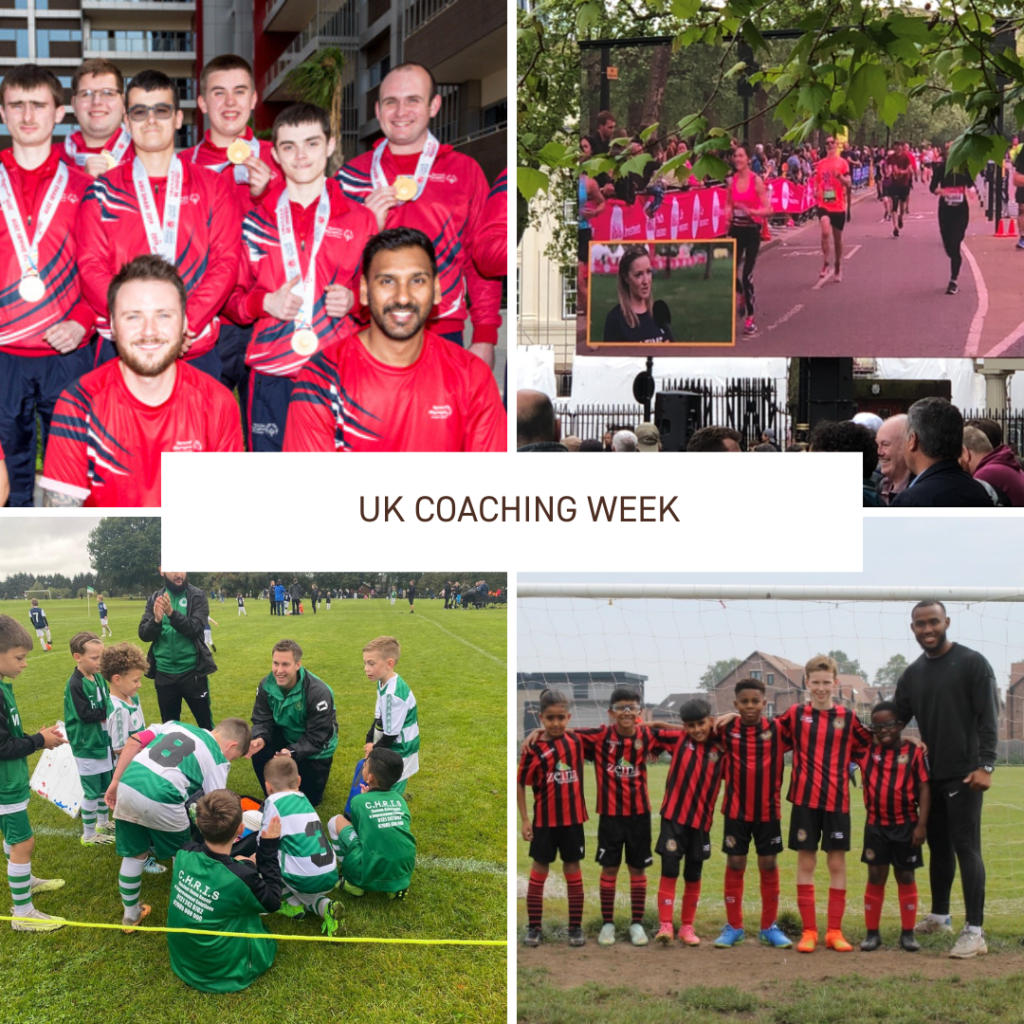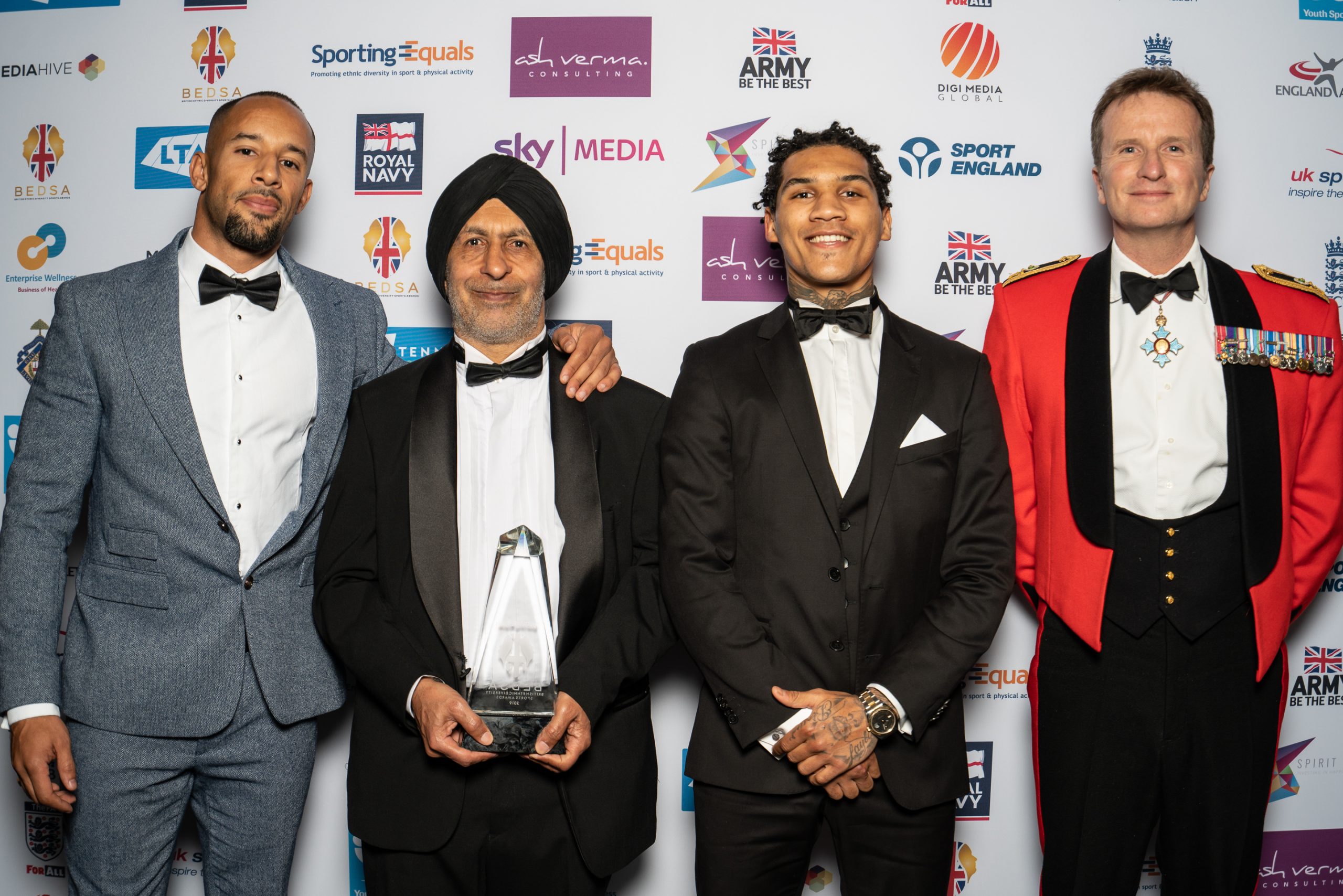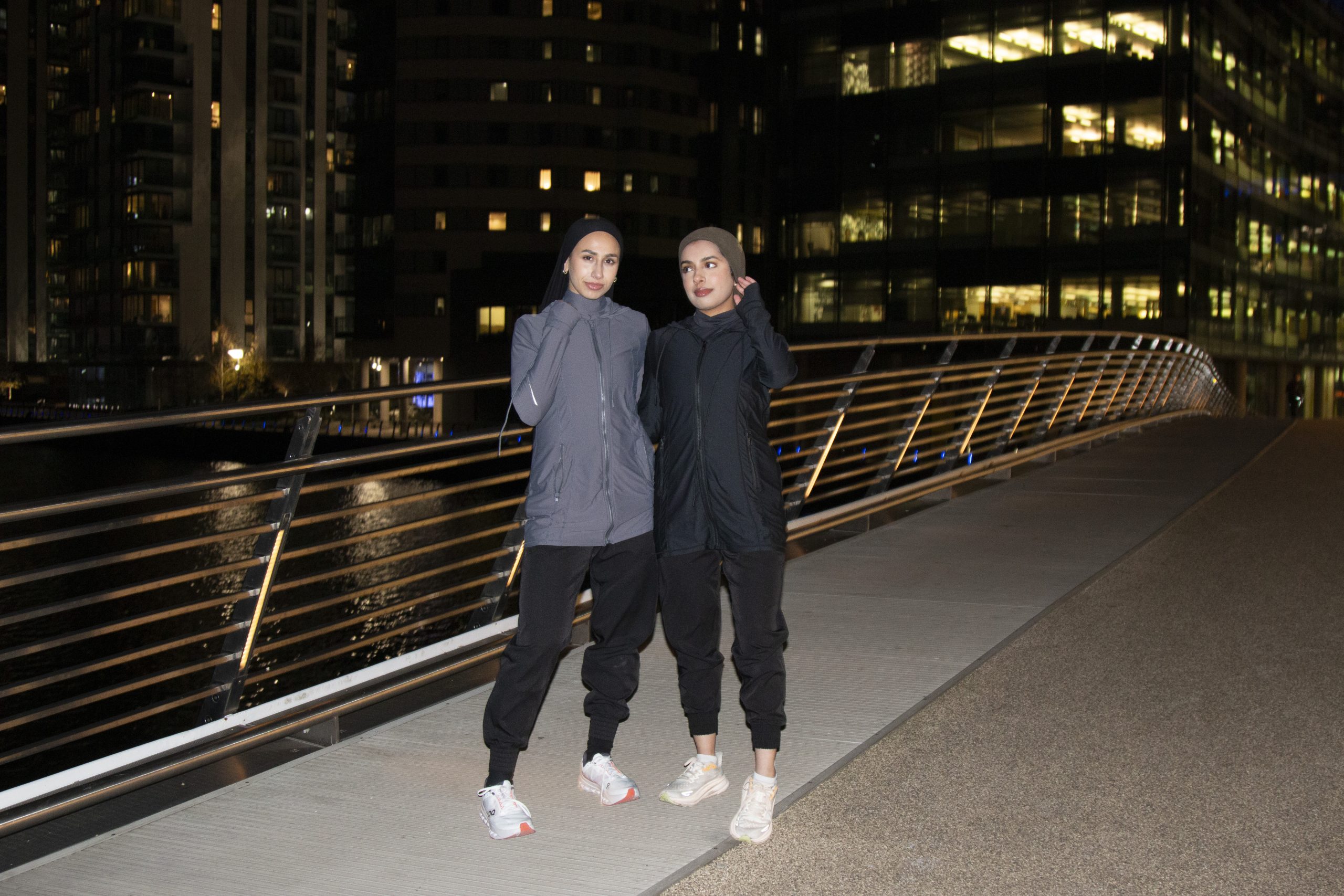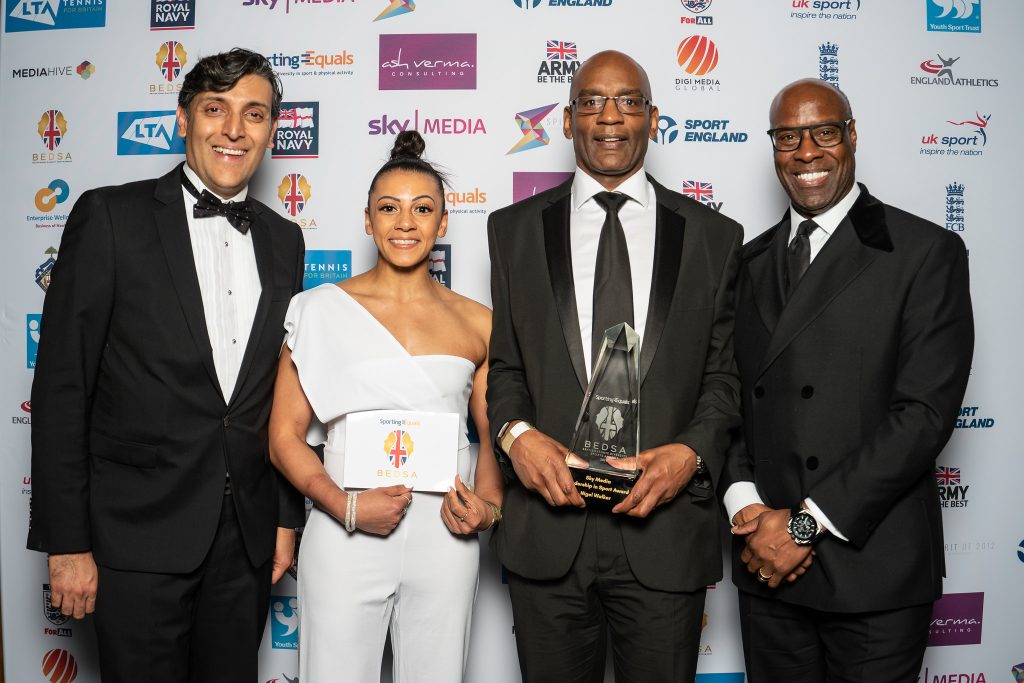How did you get in to coaching?
‘I first began coaching whilst at 6th From where I would help coach the younger years at training and games and then started volunteering at local community club once I started University.’ – Tim
‘I started multisport coaching (18). I was always keen to work at a grassroots level where I could offer people a fun and inclusive environment to learn how to love moving their bodies—something that is such a basic requirement and need for humans, and something that so quickly falls to the bottom of our lists to do when we are busy. I know, as I am equally guilty of it.’ – Gemma
‘I fell in love with sport, primarily football at the age of 4, I was always very clear through my school years that i would work in sport in some capacity. one of my hero’s is Sir Alex Ferguson for his sheer determination to develop and look after his players and nurture talent. As soon as I was old enough to coach, I was determined to start my journey.’ – Sean
‘I got into coaching while in my playing days. When I was living in Doha, Qatar, only 15, I was playing in the Under 19s Evolution Academy, but I enjoyed volunteering and helping the coaches with their sessions. That was my first time gaining coaching experience; I learned a different view and quickly loved the side of helping and developing players. I then started helping with the under 10s and 14s.’ – Colby
Where have you coached so far?
‘I spent many years coaching alongside full-time sport for development roles – always lugging around a mass of sports equipment – and have run multisport camps as well as my own netball club in Brixton, South London. More recently, after a period away from coaching after having a child, I was able to reignite my coaching passion by setting up a running club in my local community, supporting women who couldn’t run, to learn to run for 30 minutes (and beyond!). Being able to have the space to coach again, and this time to coach adults and females who were nervous to get back to movement after having children (which this cohort was), was incredibly powerful! Being able to pass on both my passion for running and my passion for creating spaces for women to move in safe spaces was a joy.’ – Gemma
‘I am currently the Head Coach at a development Football Centre and the Head Coach of an Under-10s Academy team.’ – Colby
‘From starting at a local community organisation (All Saints Basketball Club) to coaching at Summer Camps in America, spending time in India with orphanages and projects supported by my family and being part of the Special Olympics GB coaching team for the 2019 Abu Dhabi World Games.’ – Tim
‘I coached in various communities, ranging from Glasgow Muga Parks in under privileged post codes, Secondary and Primary Schools across the UK, Nurseries, Summer Camps, USA football clubs & Summer Camps, Motherwell Women FC, Football Academies. Currently I volunteer as a coach for a Football Club in the post code I grew up in called The 3 C’s.’ – Sean
What is your proudest achievement to date?
‘Coaching the 2019 Special Olympics Men’s Basketball Team to a Gold Medal was a truly rewarding experience. I had the privilege of working with some amazing coaches, and the players truly embodied sportsmanship and the essence of being an athlete. Despite facing everyday challenges and misconceptions, their commitment and passion for training and the sport shone through. Working with them was an incredible and wholehearted experience. wholehearted experience.’ – Tim
‘I think I’m most proud of the number of positive experiences I have given to people (mainly kids) over the last 15 years. whether that being through direct coaching or the many coaches I have trained in that time. For most of those years, I have had up to 10,000 children in my care each summer on top of work in schools and communities. The impact of the coaches I have worked with over that period and what they go on to do is immeasurable. I am also proud of converting a group of bullish American teenagers into “Soccer Fans” after spending the Summer of 2007 with them.’ – Sean
‘My proudest achievement to date regarding coaching would be 2 of my players being scouted and selected by two big midland clubs. As a coach watching players develop throughout the season are great moments.’ – Colby
Any barriers you’ve faced?
‘Though I have been fortunate with my coaching journey, I have seen there to be language and cultural barriers with the coaching pathways across a wide range of sports. The limited Representation with the lack of diversity amongst south Asian coaches may create barriers for individuals who prefer to work with coaches who share their cultural background, experiences, or identities along with systemic barriers and inequalities, such as discrimination or socio-economic disparities.’ – Tim
‘Coaching courses are a lot more accessible these days than they were when I was starting my coaching career. However, I do feel there is a lot more to be done around creating female-only environments on coaching courses to ensure that ethnically diverse women feel that the coaching course space and pathway are a place for them, as well as offering bursaries to support everyone to financially be able to access the opportunity.’ – Gemma
‘The biggest barriers I have faced have been because of the post code I grew up in. Coming from the biggest council estate in Europe at the time, I was more likely to go to prison than to have the nerve to seek further education. When I tried to break through the glass ceilings of getting to College, University I suffered many setbacks, experiencing people telling me that I couldn’t do it, and to get a real job! The same happened on my coaching courses. and when applying for jobs in the early days. Often been told I was too young to have the experience I had and being offered volunteer roles only.’- Sean
How you feel coaching could be made more accessible ?
‘Opportunities to coach need to be made available. Organisations need to invest in coaches and create situations where they can learn and still pay bills. When I started, I had to work 4 jobs because I couldn’t get the coaching hours. I was determined which is why I am still here. It would have been much easier to walk away from coaching into a different trade. I wonder how many great coaches we have lost because of this. We need to be inclusive and representative of the communities we coach in, are we doing everything we can to achieve this?’ – Sean
‘On Saturdays, we work on including work experience spaces for university and college students and working with young adults who may enjoy coaching. Throughout the couple years, 3 of our ex-players are now coaches – 1 being a volunteer and 2 paid coaching. They gain the experience at such a young age and all of them are currently doing their Level 1.’ – Colby
‘When starting in coaching I believe that affordability, availability and awareness of the coaching courses is key along with increasing the support given to new coaches especially within community and grassroots settings. When looking at diversifying the representation of coaches it’s important to focus on the wider cultural, ethnicity and gender, thinking outside of the box when engaging with such simplifying the language or female only coaching courses to help create safe spaces to develop. A strong communication channel to capture and champion the great work already being done to help encourage others to get coaching by seeing other that represent their ethnicity, culture and heritage.’ – Tim
‘Offering placements with trusted and supportive local organisations post-qualification acquisition is also a key opportunity that needs to be maximized, as too many people gain a coaching qualification and then do not get the support, they need to gain that practical on-the-ground experience, and then we lose them from the coaching pool.’ – Gemma
We wish all the coaches across our network a happy UK Coaching Week, we would love to share your stories on the Sporting Equals platforms, please email media@sportingequals.org.uk for more information.




